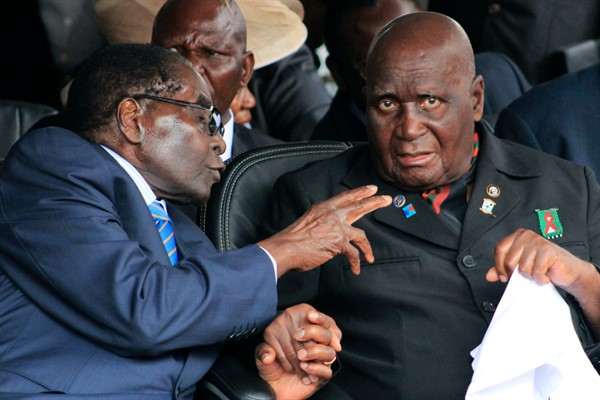When Kenneth Kaunda, Zambia’s former president and founding father, died last week at the age of 97, what followed in the Western media was a series of entirely predictable and desultory summations of an African leader’s long career in politics and public life.
There was mention of his upbringing in the church in a part of Africa then known as Northern Rhodesia, and its lasting effects on Kaunda’s moderating humanism. There were the unfailing descriptions of his affectations, like carrying a white pocket square, which he pulled out to daub his eyes when occasionally shedding tears in public, or his love of the songs that were popular in the era of independence on the continent in the early 1960s, marking Kaunda as a sort of ancient relic compared to younger audiences that have seemingly forgotten them.
Most of all, though, there was a kind of facile verdict issued about a man almost patronizingly treated as likeable enough, perhaps, compared to many rougher African characters of his time, but sadly unequal to the task of leading a poor nation like his through the early phases of its independence. Almost all the foreign accounts concluded that he was a failure on two scores, both diplomatic and economic.

